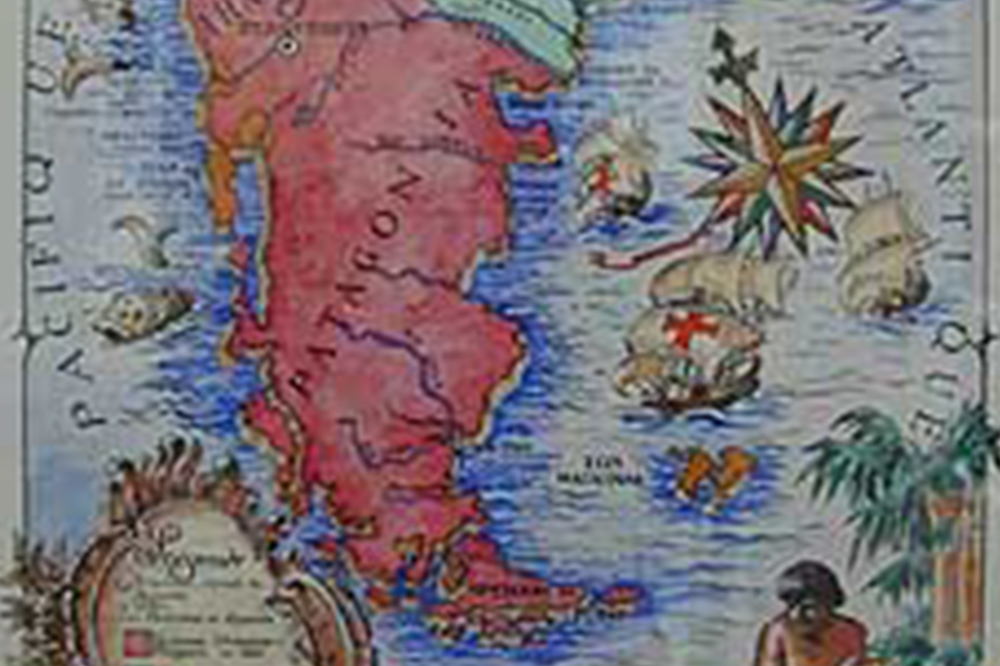RIO DE JANEIRO, BRAZIL – The map of the “Mapuche Nation” of a Bristol-based organization and the Mapuche representative supported by the British, promotes creating a separate state in Chilean and Argentine territory.
Therefore, the involvement of the Argentine government in defense of a Mapuche representative surprises many Argentines considering that the role of a foreign ministry and a country’s ambassadors is, at its core, to defend and promote national interests in the world.
Argentina’s ambassador to Chile, Rafael Bielsa, called for the release of Mapuche leader Facundo Jones Huala, who was convicted of an attack in the south of the country.
Here is a recap of what happened: On October 8, the Argentine government sent Rafael Bielsa to the hearing considering the request for conditional release of Facundo Jones Huala, the leader of the Mapuche Ancestral Resistance (RAM), who was sentenced to nine years in prison for the arson attack on an inhabited ranch in southern Chile.
Bielsa was tasked with advocating for this benefit, but it was not granted due to a history of previous escape and the fact that Jones Huala does not acknowledge the damage caused by his actions.
He neither regrets nor desists from his attacks on the Argentine and Chilean states.
For many Argentines, the presence of the Argentine ambassador, in this case, implied support for groups opposed to the state that this diplomat was supposed to represent.
“They don’t recognize the flag, the anthem, the authorities,” said Senator Miguel Ángel Pichetto, referring to the Mapuche Ancestral Resistance (RAM). “They are talking about a separate, separatist state,” he warned.
What the former Kirchnerist senator, now president of Juntos por el Cambio, says is not a secret at all but a reality that no Argentine government can ignore. Neither can the international support that these separatist initiatives enjoy.

While in the south of Argentina and Chile, Mapuche organizations such as the RAM or the Arauco Malleco Coordination (CAM) declare “war” on Argentina and Chile and carry out acts of sabotage, arson, and threats, the English headquarters of these groups, based in Bristol, England, declares on its website that “the Mapuche nation is located in what is known as the Southern Cone of South America, in the territory currently occupied by the states of Argentina and Chile.”
“On May 11, 1996, a group of Mapuche and Europeans committed to the fate of the indigenous peoples and nations of the Americas, and in particular to the Mapuche people of Chile and Argentina, founded the Mapuche International Link (MIL) in Bristol, United Kingdom,” explain the leaders of this organization: Atus Mariqueo-Russell (public relations), Carole Concha Bell (press), Colette Linehan (administration), Gerald Colfer (technical support), Pedro Arenas Rincón (human rights team) and others.
Mapuche Reynaldo Mariqueo is Secretary-General and is assisted by Dame-Nina Saleh Ahmed, Deputy Secretary-General.
This organization aims to contribute to the full development of indigenous peoples and “ultimately conquer the right to self-determination.”
According to this organization, the “Mapuche nation” includes everything south of the Bío-bío river (Chile) and south of the Salado and Colorado (Argentina), “up to the Strait of Magellan,” no more, no less.
The website states that “the Mapuche people” have never renounced “their sovereign rights or the return of their ancestral territory” and makes accusations of “invasion,” “genocide,” “repression,” and “espionage” by the Chilean and Argentine states.
For example, one entry states that “the Mapuche people are subjected to genocidal policies by the states of Argentina and Chile” and are “stigmatized and accused of being strangers in their land.” “Their leaders are persecuted, imprisoned, intimidated, and tortured. Others are killed or disappear,” according to The Mapuche web.
Critics say this is the separatist initiative that the Argentine government has just endorsed through its ambassador’s defense speech in the Chilean courts.
This comes when the Chilean state is also facing an open challenge from these groups, who, as explained by lawyer Carlos Tenorio, representative of a peasant family murdered in Chile, are asserting their demands not through legal and institutional channels but direct action.
“We are experiencing the most difficult time since I started this work two decades ago. A total lack of control that comes with the political climate,” the Chilean lawyer told Radio Mitre, referring to the results of the constitutional elections that represented a setback for the traditional parties in the assembly that is supposed to draft a new Magna Carta for Chile.
“Last week, I participated as a speaker in the electoral conference,” Tenorio said. “If we let all these crimes go unpunished, it is doubtful that we will achieve social peace.”
The lawyer distinguished between “petitions from indigenous communities” submitted “through institutional channels” and “other groups that today are armed and have declared a state of war on the Chilean state.” “Last night, there were three or four severe attacks in Araucanía. These groups are violating fundamental rights,” he said.
The case he is representing occurred in January 2013 in a 40-hectare field in southern Chile owned by a couple of named Luchsinger. It involved an attack by a gang of 40 hooded men. Mr. Luchsinger defended himself with a gun, and his attackers set fire to the house.
“They died from charring,” said Tenorio, who described the incident as “probably the most horrific case experienced from the point of view of political crimes” after the dictatorship.

